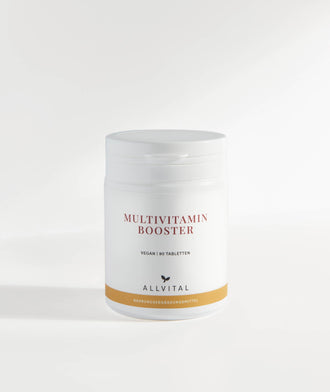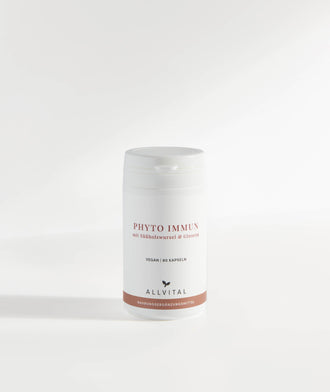
6 good reasons for including supplements in your daily routine
A wholesome and varied diet is undoubtedly the basis for good health. However, it often does not cover all the body's needs.
Supplementing your diet with vitamins and dietary supplements can therefore make perfect sense. In this blog post, we present the most important reasons why including supplements in your daily routine can be a wise decision.
1. Society is changing, and so is our need for micronutrients
You would expect the human body to be able to get everything it needs from food. However, our modern way of life presents the body with numerous challenges, so that the need for micronutrients often exceeds the supply from food, even with a balanced diet.
In addition, environmental pollution, industrial food production and the widespread consumption of processed foods contribute to the fact that a ‘normal’ diet does not provide us with all the micronutrients we need.
2. An unhealthy lifestyle and exposure to pollutants lead to an increased need
The causes of an unhealthy lifestyle, which are associated with an increased need for certain micronutrients, include smoking, alcohol consumption, chronic stress or lack of exercise. However, factors that we cannot influence ourselves, such as exposure to pollutants in our environment or in our diet, can also require a greater need for micronutrients or antioxidants in order to compensate for this strain on the body. If micronutrient deficiencies are not addressed in the long term, the risk of developing chronic conditions or certain diseases increases.
3. Change in behaviour can lead to a deficiency
Not only an increased need for certain micronutrients, but also a reduced formation as a result of changes in lifestyle can lead to a deficiency. An example of this is exposure to sunlight and the formation of vitamin D. Nowadays, many people spend most of the day indoors. As a result, we are exposed to much less sunlight than is necessary for the body to produce sufficient levels. The result is a widespread deficiency of vitamin D, even though vitamin D is so important for many processes in the body.
4. Healthy ageing requires an increased need for micronutrients
Our life expectancy has increased significantly over the last century. However, as we age, the body loses its ability to protect itself from the effects of environmental influences and oxidative stress. A healthy, balanced lifestyle is the key to healthy ageing. This also includes an optimal supply of micronutrients and antioxidants. Taking dietary supplements not only in old age, but also at a younger age, is therefore seen by many as an investment in a healthy future. After all, getting older is nice, but preferably in good health.
5. An unbalanced diet leads to a limited intake of micronutrients
Although supermarkets offer people a large selection of vegetables, fruit and other types of food, many people have a relatively unbalanced diet. A perceived lack of time is the main reason why processed foods or convenience products are preferred to fresh, healthy and varied foods. With a one-sided diet, it is obviously not possible to absorb all the nutrients and micronutrients in particular in a natural way that are necessary for good health.
6. Higher demand but lower supply: the detrimental effects of our modern food industry
The way our food gets from the fields to our tables has changed dramatically over the last 150 years. How modern food production affects the nutritional value of individual foods is unclear, but at every step of the cycle there are factors that can cause nutrients to be lost:
- Agricultural practices: Changes in farming practices, such as the use of fertilisers, pesticides and new crop varieties, can affect the nutrient content of crops. For example, non-organic food generally contains fewer nutrients than organic food.
- Plant selection and breeding: When developing new plant varieties, more emphasis is sometimes placed on aspects such as yield, growth rate and disease resistance than on nutritional value. As a result, the plants may contain fewer vitamins and minerals than their wild variants or original forms.
- Food processing and preparation: The way food is processed and prepared can affect the amount of vitamins and minerals that end up on our plates. Long-term storage, cooking at high temperatures and other preservation methods can reduce some nutrients.
- Soil health: Soil health plays a crucial role in determining the nutrients in plants. Intensive agricultural use can deplete the soil and lead to lower nutrient levels in the crops grown.
Conclusion
Increased demand, lower nutrient content in food, environmental influences and changing habits in our modern lifestyle can lead to a (relative) deficiency of vitamins and micronutrients. Daily support of your diet with certain vitamins, minerals, antioxidants and other micronutrients is therefore advisable.
In our product collection you will find a large selection of different supplements that can be taken together according to your individual needs.




